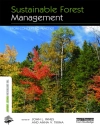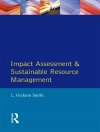This book compiles available knowledge of the response of mountain ecosystems to recent climate and land use change and intends to bridge the gap between science, policy and the community concerned.
The chapters present key concepts, major drivers and key processes of mountain response, providing transdisciplinary orientation to mountain studies incorporating experiences of academics, community leaders and policy-makers from developed and less developed countries. The book chapters are arranged in two sections. The first section concerns the response processes of mountain environments to climate change. This section addresses climate change itself (past, current and future changes of temperature and precipitation) and its impacts on the cryosphere, hydrosphere, biosphere, and human-environment systems.
The second section focuses on the response processes of mountain environments to land use/land cover change. The case studies address effects of changing agriculture and pastoralism, forest/water resources management and urbanization processes, landscape management, and biodiversity conservation.
The book is designed as an interdisciplinary publication which critically evaluates developments in mountains of the world with contributions from both social and natural sciences.
Cuprins
The world’s mountains in the Anthropocene.- Climate change and response processes of mountain environments Introduction to Section I.- Markers of climate change: analyzing extreme temperature indices over the Himalayan mountains and adjoining Punjab plains.- Spatial variations and long-term trends of rainfall across Uttarakhand Himalaya, India.- Spatio-temporal heterogeneity in glaciers response across Western Himalaya.- Temporal variability of the Satopanth glacier facies at sub-pixel scale, Garhwal Himalaya, India.- Anticipated shifting of thermal and moisture boundary under changing climate across Nepal.- Quantifying uncertainties in climate change projection and its impact on water availability in the Thuli Bheri river basin, Nepal.- Glaciers, climate, and people: Holocene transitions in the Stubai Valley.- Environmental and socio-economic consequences of recent mountain glacier fluctuations in Norway.- Paraglacial time scale and sediment fluxes for hillslope land systems in the northern Appalachian Mountains of Eastern Canada.- Distance from retreating snowfields influences alpine plant functional traits at Glacier National Park, Montana.- Environmental drivers of species composition and tree species density of a near-natural Himalayan treeline ecotone. Implications for the response to climate change.- Modelling the ecological niche of a treeline tree species (Betula utilis) in the Himalayas – a methodological overview.- Conifer growth during warming hiatus in the Altay-Sayan Mountain Region, Siberia.- Climate-induced fir (Abies sibirica Ledeb.) mortality in the Siberian Mountains.- Climate change and dynamics of vegetation in the Lesser Caucasus: An overview.- Changing climate scenario in high altitude regions: Comparison of observed trends and perceptions of agro-pastoralists in Darma Valley, Uttarakhand, India.- Current crisis and future woes: The case of climate change in the Drakensberg Mountains region of southern Africa and its socio-economic impacts.- Section II: Response processes of mountain environments to land use change Introduction to Section II.- Assessment and prediction of land use/land cover changes of Beas Basin using a modelling approach.- Dynamics of land use/land cover changes in Mizoram, eastern extension of the Himalaya.












